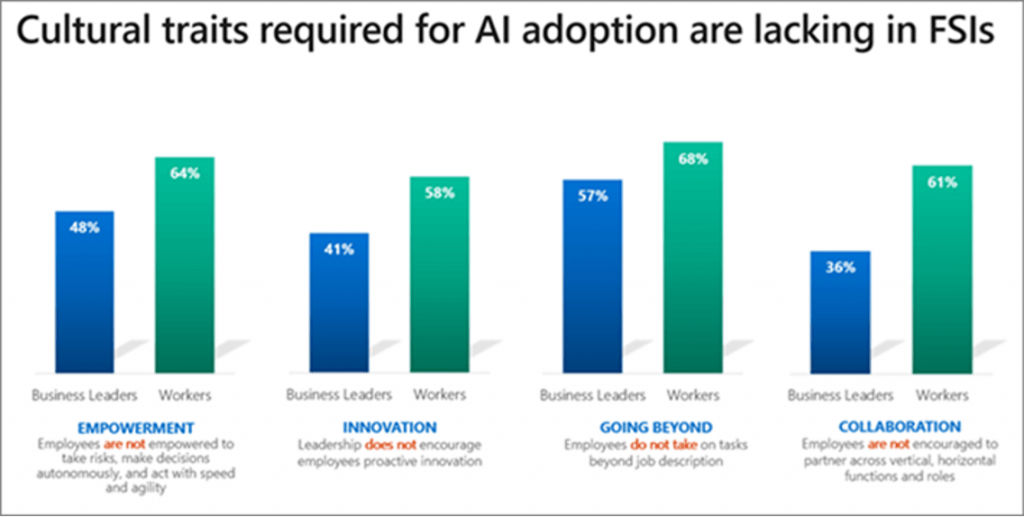One key example of an AI leader is Moula, an organization that uses AI to assess business loan applications made online.
Recognizing the importance of small and medium businesses to Australia’s economy the company established an Azure based real-time credit decisioning service and leveraged Azure AI and machine learning capabilities to predict the probability of the SME being able to pay back its loan. Successful applications can result in business loans of up to $500,000 being made available in 24 to 48 hours.
“Small business is the engine room of Australia’s economy. It’s where most people work, and without small business, big business simply cannot function. The vision of Moula in terms of liberating the value in small business data is impressive, and the partnership with BizData using Microsoft technology to bring that vision to life is a prime example of collaboration across our ecosystem to bring about not just business transformation, but sector transformation,” said Paul esavento, chief data officer, Moula.
Another example of an AI leader is MoneySQ, who launched its K-Cash personal loan platform, leveraging AI to analyze the financial profiles of loan applicants to deliver faster loan experiences for its customers.
The platform, built on Azure and coupled with homegrown AI algorithms from KBQuest’s AI-Knowie solution, assists employees by reducing the time taken to review and approve loan applications. And it does so with greater accuracy and precision. With this capability, borrowers can now walk up to a loan machine, apply for a loan, get approval and receive cash instantly, whereas previously, this would take days.
ICICI Lombard partnered with Microsoft to develop India’s first AI-enabled car inspection feature in its mobile app, “Insure.”The company saw AI as a solution to reduce the time needed to evaluate renewals or claims, which can take up to days – and is also resource intensive as it requires an insurance personnel to be present for inspections.
The app allows customers to buy or renew policies anytime, anywhere by uploading pictures of their car, without the need for physical inspection by insurance inspectors. AI and machine learning identify damage quickly from the uploaded pictures and provide an estimated repair cost in seconds.
With AI, the company is processing 150 to 200 renewals per day and is close to rolling out AI-enabled claim processes via the app. ICICI Lombard aims to process more than 80,000 simple claims every month with same-day turnaround when the module is live at the end of 2019.
C-level executives must adopt AI-driven culture for organizational-wide transformation
“To drive transformation, AI needs to be driven at the highest levels within the organization. Business leaders not only need to address data and infrastructure requirements but will also need to have a clear vision and encourage a continuous learning culture to empower staff across all levels to harness the potential of AI,” said Lim.

Technological and social-emotional skills required in an AI-ready workforce
Despite being generally positive about the impact AI will bring to jobs in the FSI industry, the study identified an acute shortage of technological and social-emotional skills. The top three skills identified by business leaders that will face demand issues include scientific research and development, digital skills, as well as adaptability and continuous learning.
“The industry needs workers who possess the right skills to support organizations in their AI journeys.” said Leung. “Beyond upskilling and reskilling employees, business leaders must possess a continuous learning mindset to counter rapid changes brought about by digital transformation.”
“On that front, Microsoft has launched the AI Business School to help business leaders strategically implement AI within the organization, especially in meeting the needs of shareholders, customers and regulators,” Leung added.
